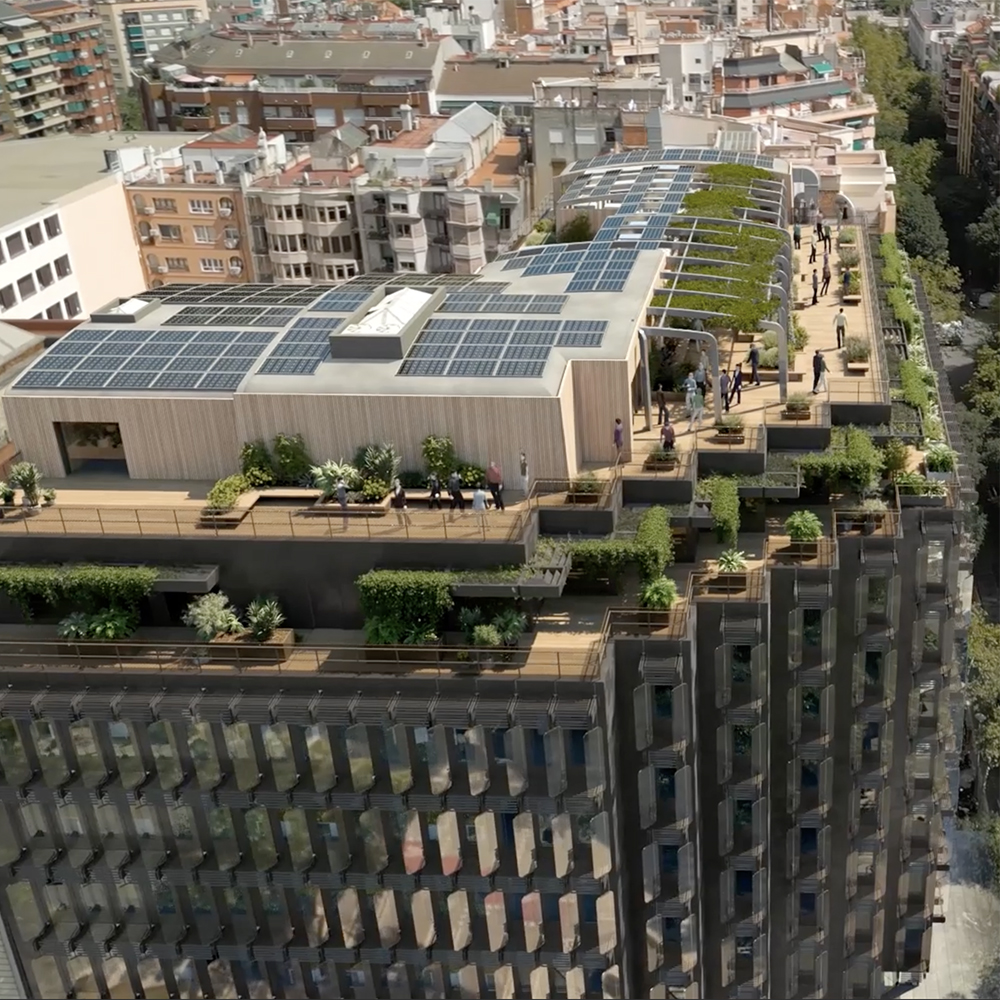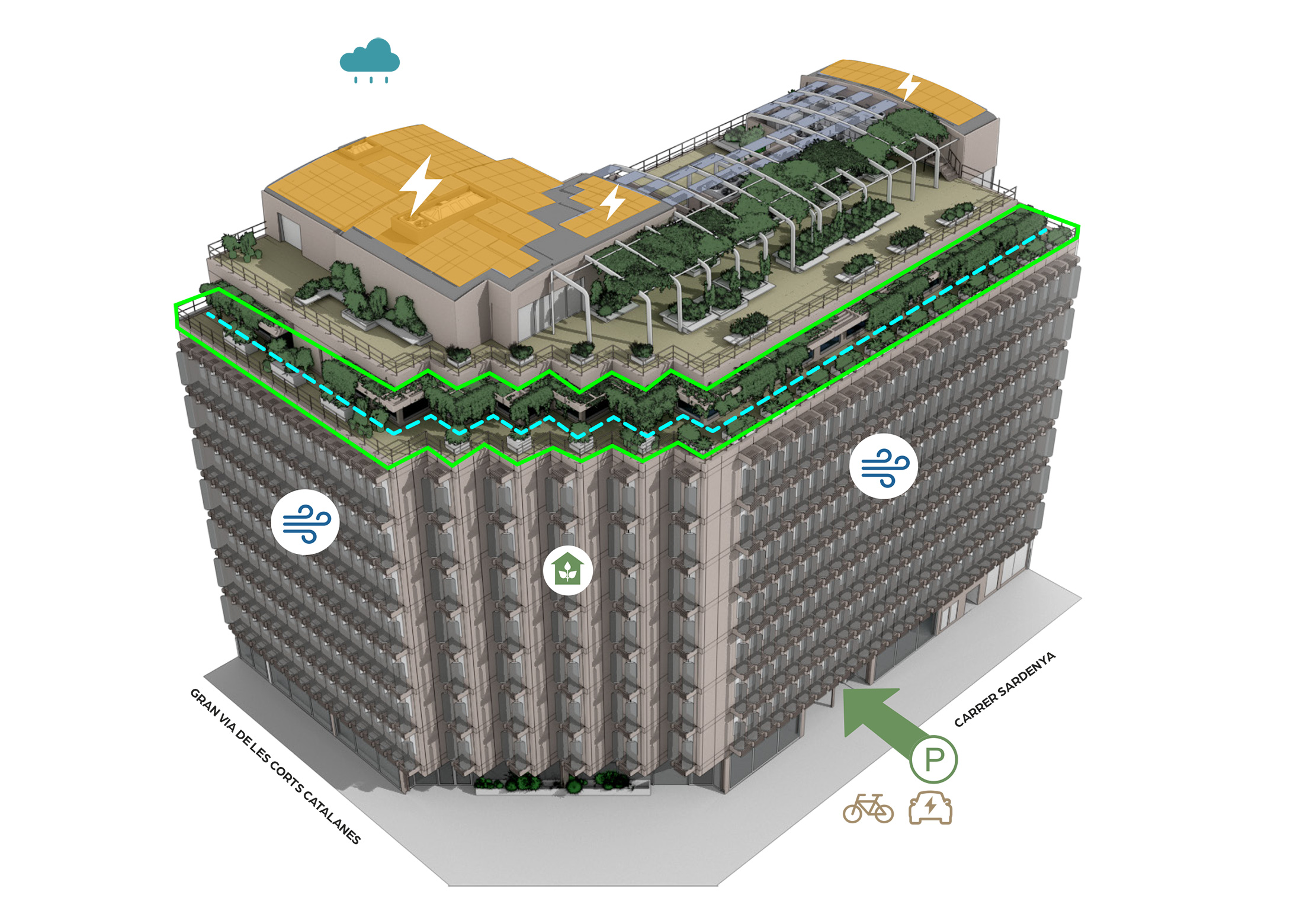MONUMENTO is a commitment to caring. Its environmental sustainability credentials are second to none, from construction materials to everyday energy efficiency. And for worker wellbeing, every detail has been carefully considered, from natural light to healthy fresh food options. The result is a workspace that meets the highest ESG criteria, boosting productivity and enhancing talent retention.
HEALTHY WORKERS,
HEALTHY PLANET

LEED is the leading international sustainability building certification. It assures energy efficiency, water conservation, the promotion of green transport and the use of eco-friendly materials. MONUMENTO has the maximum-possible LEED Platinum rating, reflecting its careful refurbishment, healthy work environments and low environmental impact.

Fitwel is the world’s most prestigious certification system for building health. MONUMENTO meets its stringent wellbeing criteria for indoor air quality, natural light, communal spaces, access to healthy food and more, ensuring that users have the best-possible quality of life at work.

SUSTAINABLE
MOBILITY
Monumento actively
encourages smart microbility.
As well as providing bicycle and scooter parking together with showers and changing rooms, the building is perfectly integrated into Barcelona’s bicycle lane network which connects the entire city. Bicing, the city’s highly popular bicycle sharing service, now offers over 7,000 bicycles (2,000 of them electric).
The nearest of Bicing’s 519 stations is just 1 minute from the lobby.
BIG BENEFITS
WITH A SMALL FOOTPRINT
SUSTAINABLE SITE
Green areas enhance contact with nature.
Minimum 25% vegetated accessible open spaces (roof, terraces, gardens) contribute to heat effect reduction.
Water Efficiency
Efficient water-use equipment.
Green areas drip irrigation ensures low consumption.
Water consumption monitoring.
Eco-Friendly Materials
Construction waste reduction through conservation of existing elements.
Prescription of environmentally certified materials.
Use of low emission materials.
INDOOR AIR QUALITY
Improved indoor air quality through use of mats, sensors and filters.
Natural lighting in workstations.
Reduced acoustic pollution.
Renewables
and Energy Efficiency
Integration of solar energy.
Façade performance improves thermal insulation.
Significant reduction in energy demand
thanks to natural lighting.
Energy consumption monitoring.
